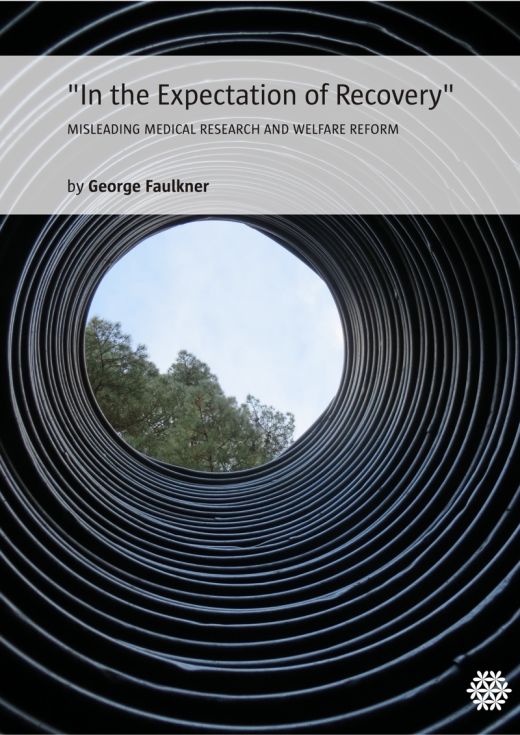George Faulkner's report outlines how misleading medical research has been used to support disability cuts.
Author: George Faulkner
Introduction: Simon Duffy
The attack by the UK Government on disability benefits has only just started to receive mainstream coverage in the wake of the resignation of Iain Duncan Smith. Until recently the Government found that it could reduce disability benefits by presenting its planned cuts as 'reforms' which would bring benefits, that included increasing employment levels and better health.
The Government's strategy for promoting its reforms seemed to rely heavily on a combination of prejudice and wishful thinking. On the one hand it implied that many of those not working were 'skivers' - people who could work - but who chose not to. On the other hand the Government relied on research which seemed to support the biopsychosocial model of disability - a model which could be taken to imply that illness or disability was at least partially the result of the attitudes held by sick or disabled people themselves. Although the language of the biopsychosocial model is clinical, there is a severe danger that, in the wrong hands, it can be used to support ugly prejudices.
The evidence used to support the biopsychosocial model is often weak, or misleadingly presented; however in 2006 the DWP funded a group of academics to begin the PACE trial which the Wolfson Institute of Preventative Medicine describes as:
"This large-scale trial is the first in the world to test and compare the effectiveness of four of the main treatments currently available for people suffering from chronic fatigue syndrome (CFS), also known as myalgic encephalomyelitis (ME)."
Results from this trial were first published in 2011 and were presented as an exciting success for biopsychosocial interventions. Since then the Government has gone on to use the biopsychosocial model, and the theories underpinning it, to suport its general approach to benefits and welfare reform. For instance, in 2012 Lord Freud defend the 'reform' of Disability Living Allowance in the House of Lords by saying:
"...we have gone for the biopsychosocial model. That model has now garnered very significant academic support, as those noble Lords to whom I sent that very interesting piece of research will recognise."
Unfortunately it turns out that the research that Lord Freud refers to is often deeply flawed. In this detailed report, George Faulkner explains what went wrong and the lessons we should learn. While campaigners continue to demand that the full trial results be published, what is already clear is that the results were manipulated to give a much greater appearance of success than should have been claimed. It is also worrying that some of those involved are closely connected to private insurance companies, such as, Unum, which seems to be lobbying Government to promote private health insurance, instead of our public social security system.
Growing numbers of the international scientific community have begun to express concerns about the research central to this report, for instance, recent discussion includes:
PACE: The research that sparked a patient rebellion and challenged medicine
Results of the PACE follow-up study are uninterpretable
An open letter to The Lancet, again
George Faulkner's powerful report usefully describes many of the problems with the PACE research and explores its impact in relation to debates about welfare reform.
Please email George if you want to find out more.
Read and download the free pdf in your browser here.

The publisher is the Centre for Welfare Reform.
"In the Expectation of Recovery" © George Faulkner 2016.
All Rights Reserved. No part of this paper may be reproduced in any form without permission from the publisher except for the quotation of brief passages in reviews.
Chronic Illness Inclusion, health & healthcare, mental health, social justice, tax and benefits, England, Paper